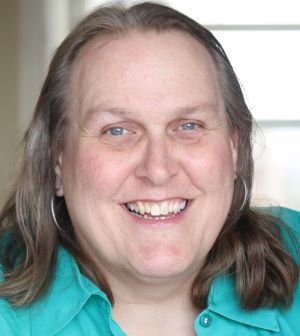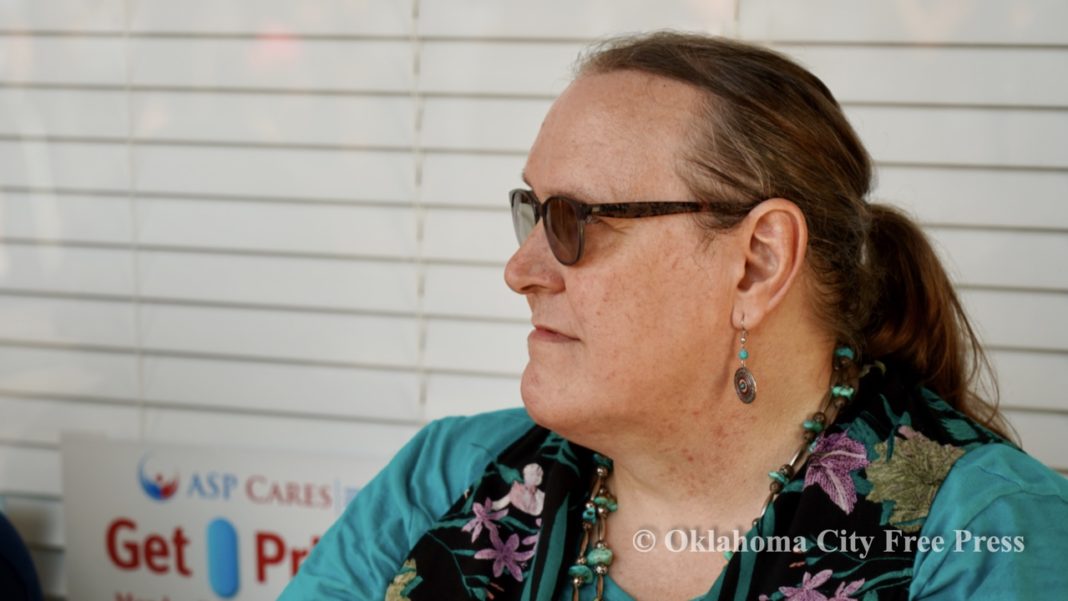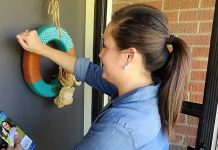Last Updated on January 5, 2024, 12:54 AM | Published: January 14, 2022
Paula Sophia Schonauer, LCSW, continues a serial memoir. If you haven’t read the earlier parts of this series, follow the links at the bottom of this page.
“We are all butterflies. Earth is our chrysalis.”
― LeeAnn Taylor
I had these feelings, an attraction to girls that was considered normal for a boy my age. I wanted to have a female companion, someone with whom I could express affection, someone through whom I could receive affection: hugs and cuddles, kisses, and groping explorations, what my buddies in baseball called making it to second base.
Getting to second base would also assert my masculinity. However, it would be nearly a decade before that would happen. In the meantime, I was content to let others assume I had “done it,” and, sometimes, I aided these impressions with vague stories of having developed a relationship with a girl somewhere. Her name was Jenny.
Jenny was not entirely a fabrication. She was a real person I met during a week-long stay at Camp Mohican, a nature education program for 6th graders, my first experience of a stay-away camp. My class got to go during the first week of December. I stayed in a cabin with a dozen other boys, most of whom were becoming aware of their attractions to girls, a couple of whom had quickly connected with a girl during the first two days of our stay.
Preteen boys have a jocular nature about pairing with girls, an ambivalence left over from a gender-segregated recent past, which had been enforced, in my day, with the fear of “cooties.” They also have a curiosity about girls and their developing bodies. One of the boys in the cabin, Kevin, had curly dark hair and resembled a younger version of John Travolta, then a television star famous for his portrayal of The Boy in the Plastic Bubble and Vinny Barbarino on Welcome Back Kotter. We all noticed the girls swooning over him during dinner at the big conference cabin in which we held some of our classes during the day. We teased Kevin about his girlfriends with a sense of envy, all of us wanting to emulate him, and he seemed to bask in the attention, lauded as a pioneer among our peer group – the first to kiss a girl.
To be a real boy was to be attractive to girls, to be desired and swooned over as a masculine ideal. Kevin’s resemblance to a celebrity helped him fulfill some girls’ fantasies, perhaps, but since I had no resemblance to a celebrity, I felt a deficit. Plus, my ambivalent identity and attractions made me afraid to make my affections known. I did not think I could withstand the onslaught of teasing the way Kevin did, good natured and slightly embarrassed, but in a cute way. Teasing would have triggered me to vociferously denounce the situation and, if unrelenting, provoke me to fight. I had yet to learn how teasing could be a form of bonding among boys.
One day, on the way to breakfast, I saw a girl walking alone. She was from a different school, so I had no history with her: no bullying, no restroom trauma, no fighting. Her attitude toward me was a clean slate, and, as I sped up to walk next to her, she looked back and smiled, the smile seeming like an invitation. I trotted the last steps to her side, on the verge of breathlessness from being nervous more than exertion. We walked quietly for a time, simply enjoying each other’s presence.
“What school are you from?” she asked.
“Redeemer.”
“I’m from Galion,” she said. Galion is a small-town west of Mansfield, Ohio.
“Cool.”
Such was our conversation for the rest of the walk to the dining hall, her with questions and me with one-word answers, but it felt good to bond with her, if on a superficial level. During breakfast we sat at the same circular table, her on the half with girls, me on the half with boys, and we caught ourselves staring at each other. She smiled when catching my eye. I felt a kind of paralysis when I noticed her looking at me, and I imagined I looked more like a feral animal caught in a spotlight, surprised and uncomfortable, unable to smile back.
Later in the day, we were in a class together: Winter Survival. The teacher was a gruff looking guy, more hippy than mountain man. He had long hair and a beard, and he seemed well acquainted with surviving the outdoors in all weather. He discussed some basic principles: the need for warmth, the need for hydration, the need for suitable nutrition, and the need for shelter. During one of the discussions, he told us that body warmth would help us survive a harsh winter night, and that to make it through a cold night, we might have to share a sleeping bag with someone.
Jenny and I looked at each other at the same time. I noticed a sudden redness in her cheeks even as I felt the heat on my own. I wondered if she might sleep with me in such dire circumstances.
Our teacher led us on a hike into the woods adjacent to the campground. It was cold outside, clouds of vapor forming with our breath. We hiked to a small clearing, at the center of which was a large, dead tree wider than two large men standing shoulder to shoulder, and judging by what remained of its barren canopy, it must have been over one hundred feet tall. At this point, though, it had been diminished by death and the slow process of decay, large branches having fallen around its base with skeletal remains reaching upward, beseeching the sky. It was kind of spooky, forlorn against the gray slate of clouds above the forest.

“This was an American Chestnut Tree,” our teacher said. “They are now extinct. No more chestnuts roasting on an open fire.” He had a sad tone to his voice verging on anger. “It’s because human beings alter the environment by introducing alien species to what had been a pristine wilderness.”
He spoke about the introduction of the Chinese Chestnut Tree during the 1800’s and how a fungus from the Chinese trees had devastated the American species, killing billions of trees along the Eastern seaboard and westward along the Ohio River. He talked about ecological responsibility.
After his speech, he made himself calm down. “But that’s not what we’re supposed to be doing today. We’re supposed to build lean-tos. I just wanted to let you know your constructions are being built from the remains of what had been a beautiful tree, maybe one of the biggest in the area, decades old, maybe a century, before it died.”
He showed us the basic construction of a lean-to, explaining how it can help shelter people against wind and precipitation, and that staying as dry as possible was essential to survival in the wilderness. “It’s a temporary shelter, but it can save your life.”
Somehow, Jenny and I ended up being partners for the project. I think it was one of those “accidentally-on-purpose” things, as we were standing near each other when our teacher picked partners, making sure boys and girls were paired together.
Jenny cheerfully gathered some wood and started piling it near our spot, while I searched for bigger branches strong enough and long enough to construct a basic structure. Luckily, there were plenty of branches to choose from. I built the basic frame, choosing two wide branches for the base and two slightly thinner branches for the leaning part. Jenny laid thinner branches across the frame, finding some withered vines to help secure the branches together. I went several paces into the forest and found some fallen pine branches, laying them over the framework. It started to look like a cozy little house. Some of the other kids weren’t as diligent in their task as we were, and the teacher went around criticizing their lack of urgency, urging them to think about having to sleep in their lean-tos overnight.
Jenny and I looked at each other. She smiled and let out a sudden gasp, the vapor from her breath taking longer than usual to dissipate. It seemed she was nervous, maybe excited. I know I was.
When the teacher approached our lean-to, he smiled and nodded. “Now, this will get you through the night,” he said. “Good job.”
One of the kids in the group raised his hand. He had a round face and wore a hood over ear muffins, and he looked a little scared. He bunked in my cabin, one of those kids who pleaded for the bathroom light to be kept on during the night, a sentiment I shared, and I was grateful I did not have to be the one to make the request.
“We’re not going to have to really sleep out here tonight, are we?”
“What if I told you, yes, you will be sleeping out here tonight?”
Jenny and I looked at each other, eyes wide. She did not look displeased, though. The round-faced kid frowned, face red like he was upset.
“But my mom doesn’t want me to sleep outdoors. I have asthma.”
Some of the other kids laughed, imitating the round-faced kid’s whine. I was scared, too, but if it meant spending the night with Jenny, I would be brave. Maybe, she would have to get into the sleeping bag with me.
“Would you have been more serious about building your lean-tos if you knew you were going to have to really use them?” the teacher said to the class. “I bet only Jenny and Paul would make it through the night.”
A nursery rhyme played through my mind, Under the spreading chestnut tree, there we sit both you and me. Oh, how happy we would be, under the spreading chestnut tree. I felt a sense of loss understanding that American Chestnut trees were now extinct, and I wondered if Jenny liked me enough to share a lean-to overnight, if she would cuddle with me for survival.
I imagined us huddling together beneath the dead tree, scared and holding onto each other for comfort and warmth, cocooned in my sleeping bag. I thought about the Bible passage in the Gospel of Matthew about two becoming one flesh, and I rationalized, if I can’t become a girl, maybe I could be loved by one, becoming one with her. I was not thinking about sexual intercourse in this instant but more of a mystical union that allowed two people to become so close they would know each other, feel each other’s emotions, think each other’s thoughts. I thought, maybe, I could be a guy if this was how it worked. Also, it would be a strong bonafide to have a girlfriend, a wife with whom I could share my whole self. I also understood that I could not be my whole self until I found my other half, that maybe, if I got married, I could go to heaven.
Previous episodes
- Manhood, from the inside out — Memoir and Mythology
- Part 2 — Cubby Hole
- Part 3 — Magic Carpet Cocoons
- Part 4 — Snips and Snails and Puppy-Dogs’ Tails
- Part 5 — Mirror
- Part 6 – Deep Water
- Part 7 – Limbo
- Part 8 – Dissociation
- Part 9 – Shame
- Part 10 – Judgement Day
- Part 11 – Inferno
- Part 12 – Haunted
- Part 13 – Did I say that?
- Part 14 – The end times
- Part 15 – Alone again (naturally)
- Part 16 – Welcome to Grey Town
- Part 17 — Stigma
- Part 18 — Turning the other cheek
- Part 19 — Malingering
- Part 20 — Rorschach
- Part 21 – Soft hands
- Part 22 — How real men talk
- Part 23 — Crash landing
- Part 24 — To make a fist
- Part 25 — To hurt another
- Part 26 — Showdown
- Part 27 — Savage aggression
- Part 28 – Heroic
- Part 29 — Fear of death
- Part 30 — To be an android
- Part 31 — Too old for toys
- Part 32 — Her eyes
- Part 33 — A bedtime story
- Part 34 –- Sacrifices
- Part 35 — don we now our gay apparel
- Part 36 — Aspirations
- Part 37 — Doing the math
- Part 38 — Baseball rebels
- Part 39 — Climbing Mount Maslow
- Part 40 — Dear mom
- Part 41 – O Holy Night
Guest Columnist Paula Sophia is a licensed clinical social worker in Oklahoma City and a former Oklahoma City Police Officer.







